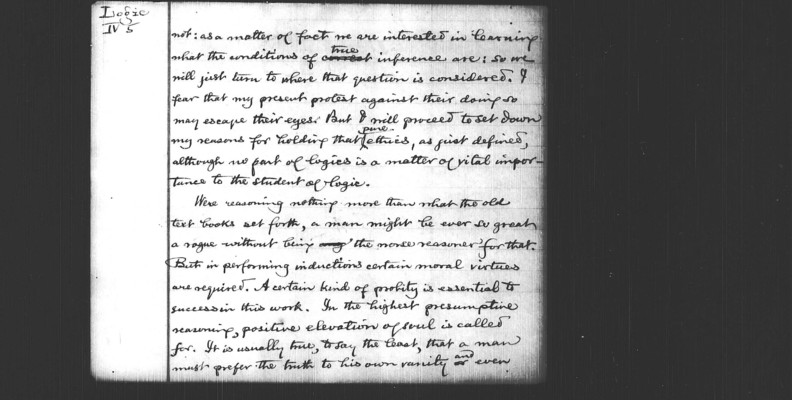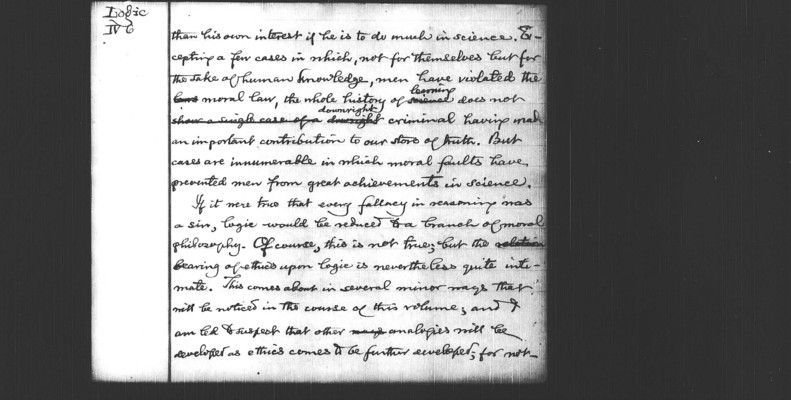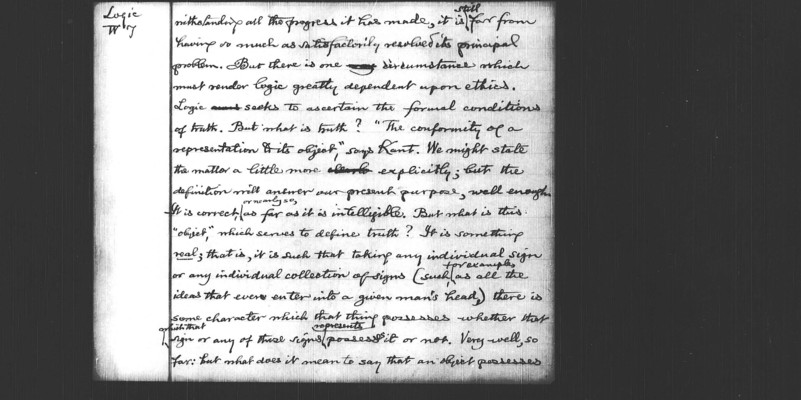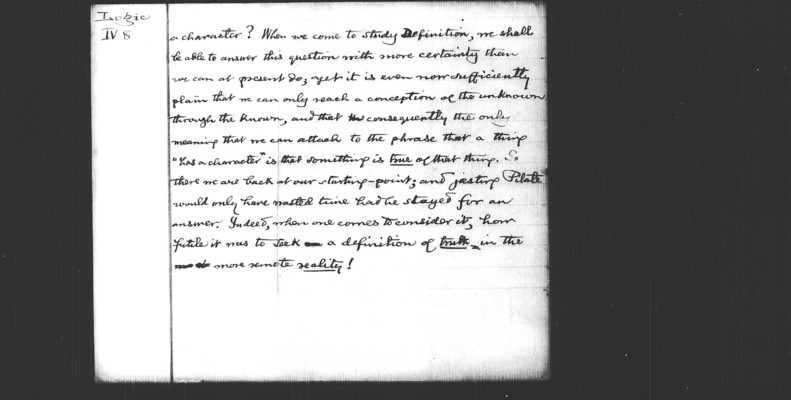Pages
6
not: as a matter of fact we are interested in learning what the conditions of true inference are: so we will just turn to where that question is considered. I fear that my present protest against their doing so may escape their eyes. But I will proceed to set down my reasons for holding that pure ethics, as just defined, although not part of logics is a matter of vital importance to the student of logic.
Here reasoning nothing more than what the old text books set forth, a man might be ever so great a rogue without being the worse reasoner for that. But in performing inductions certain moral virtues are required. A certain kind of probity is essential to succession of this work. In the highest presumptive reasoning, positive elevation of soul is called for. It is usually true, to say the least that a man must prefer the truth to his own vanity and even
7
than his own interest if he is to do much in science. Excepting a few cases in which, not for themselves but for the sake of human knowledge, men have violated the moral law, the whole history of learning does not downright criminal having made an important contribution to our store of truth. But cases are innumerable in which moral faults have prevented men from great achievements in science.
If it were true that every fallacy in reasoning was a sin, logic would be seduced to a branch of moral philosophy. Of course, this is not true; but the learning of ethics upon logic is nevertheless quite intimate. This comes about in several minor ways that will be noticed in the course of this volume, and I am led to suspect that other analogies will be developed as ethics comes to be further developed; for not-
8
withstanding all the progress it has made, it is still far from having so much as satisfactorily resolved its principal problem. But there is one circumstance which must render logic greatly dependent upon ethics. Logic seeks to ascertain the formal conditions of truth. But what is truth? "The conformity of a representation of its object," says Kant. We might state the matter a little more explicitly; but the definition will answer our present purpose, well enough. It is correct, or nearly so, as far as it is intelligible. But what is this "object," which serves to define truth? It is something real; that is, it is such that taking any individual sign or any individual collection of signs (such, for example, as all the ideas that ever enter into a given man's head). There is some character which that thing possesses whether that which that sign or any of these signs represents possesses it or not. Very well, so far: but what does it mean to say that an object possesses
9
a character? When we come to study Definition, we shall be able to answer this question with more certainty than we can at present do; yet it is even now sufficiently plain that we can only reach a conception of the unknown through the known, and that consequently the only meaning we can attach to the phrase that a thing "has character" is that something is true of that thing. So there we are back at our starting-point; and jesting Pilate would only have wasted time had he stayed for an answer. Indeed, when one comes to consider it, how futile it was to seek a definition of truth in the more remote reality!



